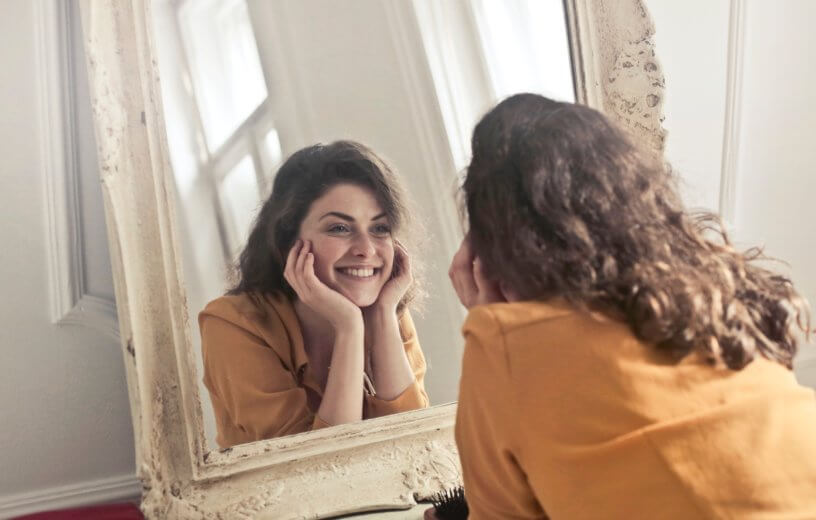CAMBRIDGE, United Kingdom — The human body is an incredible melody of separate organs and systems all performing a specific function while simultaneously working together. Even today, for all of modern science’s achievements, there’s still so much we have yet to discover about what makes us tick. Case in point, a new study just released by scientists at Anglia Ruskin University. For the first time ever, researchers have discovered that the strength of the connection between our brains and internal organs influences how we feel about ourselves when we look in the mirror.
These internal signals between organs and the brain happen on an unconscious level. Yet the study finds that adults whose brains are less efficient at detecting those signals are more likely to feel poorly about their bodies, weight, and overall appearance.
“We experience our body both from the inside and out: we can be aware of how our skin and limbs look, but also of how hungry we feel or how strongly our heart is beating during exercise. The brain also continuously processes internal signals that we are not conscious of,” explains senior study author Dr Jane Aspell, an associate professor of Cognitive Neuroscience at Anglia Ruskin, in a media release.
“We found that when the brain is less responsive to these implicit signals from inside the body, individuals are more likely to hold negative views about their external bodily appearance. It may be that when the brain has a weaker connection to the internal body, the brain puts more emphasis on the external body and so appearance becomes much more important for self-evaluation,” she continues.
Could this body image breakthrough help prevent eating disorders?
Study authors believe these findings hold therapeutic value for those who regularly suffer from poor self-esteem and body shame. If there were a way to correct the problem, for example by turning up the volume on the unconscious signals and making them conscious, it could help countless people feel better about themselves. Moreover, researchers speculate that a weak brain-organ connection may one day be used to identify individuals at a higher risk of developing an eating disorder.
“Our research could have implications for those experiencing negative body image, which can have a serious impact on people’s lives,” comments lead study author Dr. Jennifer Todd, a postdoctoral research Fellow at the university. “The gut and heart signal measurements used in our study could potentially act as a biomarker to help identify, or even predict, negative body image and associated conditions, such as eating disorders. Additionally, by training people to become more aware of internal sensations, it might be possible to amplify these unconscious signals.”
Study participants, all generally healthy adults, were asked to participate in four body image assessments measuring individual feelings of body appreciation, body functionality appreciation, weight preoccupation, and body shame. Next, internal brain-organ connections were measured. For the gut, this was accomplished by recording the electrical activity of both regions at the same time. A portion of heart-gut “messages” are processed unconsciously via the nervous system interpreting said signals and providing the brain with continuously updated data on the body’s internal state. Meanwhile, brain responses to heartbeats were also recorded.
That process led to the conclusion that weaker brain responses to the gut and heart are both significantly linked to more body shame and weight preoccupation.
“We need to understand why some brains are better at detecting these internal signals than others. We expect it is partly due to differences in neuro-anatomical connections between the brain and internal organs, and this will be the subject of future research,” Dr. Todd concludes.
The study is published in Cortex.
